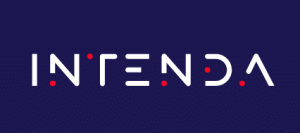COPYRIGHT © INTENDA 2025 | EMAIL info@intenda.tech
In our new white paper, Modern Data Management for FMCG Analytics: Data Lake vs. Ontology Platform, Intenda’s Chief Strategy Officer Iggy Geyer examines two different approaches that FMCG businesses can pursue to meet modern data demands.
The FMCG industry is replete with data that has the potential to deliver significant business value, but many companies in the FMCG sector encounter the same obstacles in their data transformation journeys: slow time to value, high costs, limited return on investment and erosion of trust in AI due to poor data quality. To address these challenges, FMCG businesses can either opt to invest in a modern data lake utilising Azure’s native data services, or instead, implement a modern ontology platform. The white paper examines the advantages and disadvantages of both approaches, before making a recommendation as to which represents the better option for FMCG businesses.
Azure Data Lake Storage serves as a central repository for vast amounts of raw data in its native format, and offers three fundamental benefits. These are scalability and cost-effectiveness; flexibility, in that this approach allows ingestion of diverse data sources without immediate schema definition; and cloud-based convenience, facilitating streamlined data management within the Microsoft ecosystem.
On the flip side, the data lake approach also comes with some drawbacks: Ensuring data quality and consistency is challenging and requires robust governance processes, while limited semantic understanding and lack of semantic context can hinder data exploration and slow time-to-insight. In addition, siloed analytics can be a factor due to data lakes not readily translating into actionable insights.
An ontology platform goes beyond traditional data management, organising and structuring data in a meaningful way. It acts as a nonintrusive layer that unifies data from various silos without requiring data migration, automates data pipeline integration, simplifies regulatory compliance, and provides a common data intelligence layer that offers a holistic view of the data landscape.
These capabilities deliver three key advantages for FMCG businesses that choose this approach, namely, improved data integration and governance, better semantic understanding, and a unified platform that provides a single environment for accessing and analysing data.
Of course, there’s always a catch, or more than one. In the case of an ontology platform, it’s the significant upfront investment required, the fact that ontology platforms offer less flexibility than data lakes, and the risk of getting locked into a specific technology, thus making it difficult to adopt different data management solutions further down the line.
While both Azure Data Lake Storage and a modern ontology platform are viable options, you’re probably wondering which represents what we at Intenda believe is the superior choice for companies with complex data ecosystems and a need for real-time insights. Do the scalability and flexibility a data lake offers trump the structured framework for data governance and unified analytics an ontology platform provides? Or is a data lake’s lack of structure and limited semantic understanding enough of a shortcoming to make an ontology platform the better option, notwithstanding the higher upfront cost and lower flexibility? When all pros and cons are considered, which approach is more likely to deliver the better results for FMCG businesses seeking to maximise the value of their data and gain a competitive edge?
We’re not going to give you a spoiler in this blog post. To find out which approach is recommended, you’ll have to read the white paper itself, which you can access at no cost using the download button at the bottom of this page.

Our monthly email newsletter content is relevant and engaging. We know your time is valuable and will not spam you.
Thank you for contacting us.
We will be in touch shortly.
